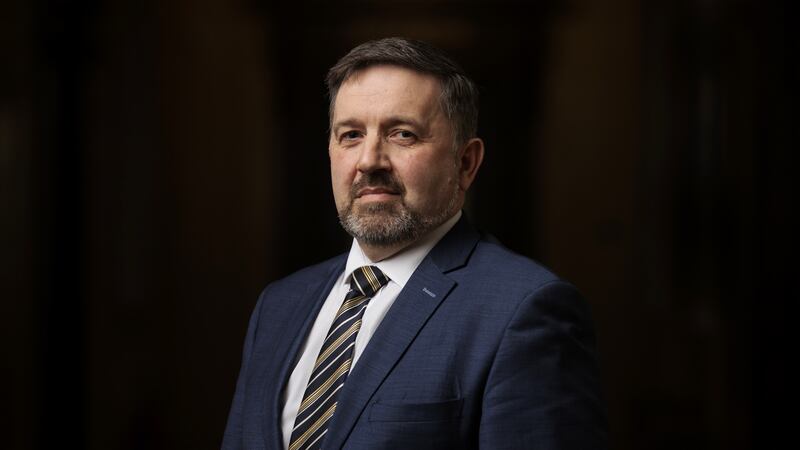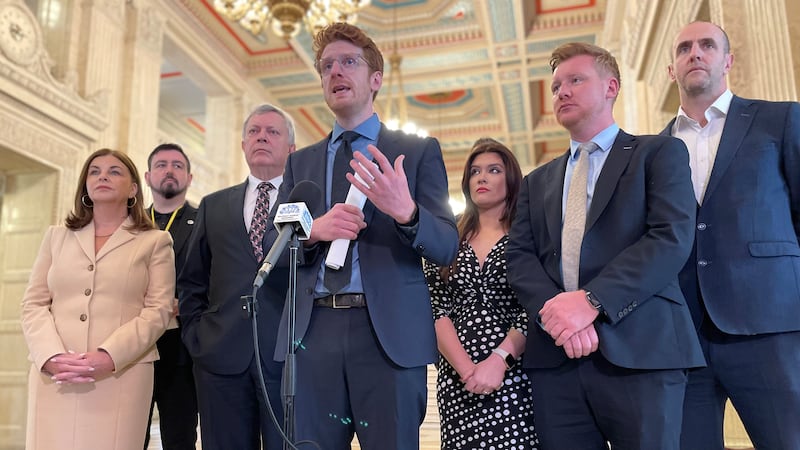I note that Gerry Gregg’s recent BBC documentary on the RUC was liked by commentator Ruth Dudley Edwards.
Personally, I have no problem with RUC personnel telling their stories. They are entitled to their feelings of triumph, tragedy and despair, to a sense of loyalty and of group solidarity. I have a problem with Gregg’s film, as either a comprehensive view of the RUC, or even as a comprehensive view from within the RUC.
Retired RUC officers telling their own story has merit, if the audience is given differing perspectives. Instead, we were presented with the repeated claim that the RUC “didn’t start the fire” of the Troubles. It is clearly mistaken.
Was no retired member of the force capable of admitting that they alienated the nationalist population? One participant said: “We were hated.” But that admission was left unexplored. It was implied that the nationalist population was irrational, rather than that the RUC earned the attitude.
Mention of convicted RUC officers Billy McCaughey and John Weir, for killing Ahoghill businessman William Strathearn served to allow participants to distance themselves from those who ‘sullied’ the RUC’s name.
Had the programme interviewed John Weir, the TV audience would have been presented with evidence of collusion further up the ranks. Strathearn’s actual killer, Robin Jackson, was not charged with that or with other loyalist paramilitary activity. That was because Jackson had associations with security forces, including RUC Special Branch. McCaughey once boasted that his RUC Special Patrol Group intimidated out a lone Roman Catholic who joined.
It was asserted that Special Branch ran agents in both the IRA and in loyalist groups. In fact, Special Branch and British military intelligence ran loyalist groups against the IRA and against nationalist political leaders. Former CID detectives Johnston Browne and Alan Simpson have written critically about how Special Branch operated. They would have made for informative interviewees.
We were given a fantasy version of the RUC story.
TOM COOPER
Dublin 2
Evolution comment exposes dearth of scientific understanding
TJ Hardy (October 31) attempts to marginalise the theory of evolution by claiming that it is overplayed as it cannot explain everything relating to human life.
It is surprising that anyone would think that any branch of the sciences should claim omniscience as scientists themselves relish gaps in knowledge or new evidence which overturns existing theory. It’s what keeps them going.
The inference that Richard Dawkins held the view that evolution can explain almost everything relating to human life is flawed to the point of incredulity. Even the casual reader of Dawkins will be aware of his conviction on evolutionary biology’s susceptibility to new evidence. His work on the theory on memes (cultural evolution), while very much a work in progress, has offered considerable insight into the concept of consciousness and lays waste to Mr Hardy’s assertion to the contrary. This possibility of a cultural evolutionary connection to consciousness is covered (inter alia) in A Devil’s Chaplain, p140 -150, The Selfish Gene and The God Delusion. This latter book, I suggest, is why Dawkins is singled out for criticism by Mr Hardy, whose dearth of scientific understanding is further exposed with his comments that evolution cannot explain the supernatural or ensoulment.
It seems banal to state the obvious but science doesn’t deal in the supernatural or the metaphysical but relies on evidence, experiment and intellectual honesty, the latter being absent in any person who believes that evidence will ever become available which will prove the existence of a soul, or the point at which on our evolutionary scale we were entrusted with it. By all means have belief in these things but be gracious enough to accept you are relying on faith not fact.
With Mr Hardy, one suspects that he is more concerned with what evolution has disproved (the myths of Adam and Eve, and the creation of the world, as adumbrated in Genesis) than he is with what it cannot prove. Attempting to belittle a scientific and literary giant is a flawed effort to supplant reason with unreason.
DANNY TREACY
Templepatrick, Co Antrim
Say no to war in thought, word and deed
THIS month we remember the men and women who died in the battles of the First and Second World War and wars before and since.
This makes me very sad to think of the slaughters of those young people who died in the prime of their life and the many graveyards there are of those who shouldn’t have been killed.
If things had been put right before the killings started in the first place, by the political leaders of the countries that went to war, so many of their young people would not have had to die.
Those who survived have been wounded, lost legs and arms, been blinded and suffered mental illness etc – and get medals for killing their fellow men from other nations. We, the people of the nations of the world, can stop wars simply by refusing to fight and turn our backs on war, as world leaders cannot make war if people say no to the politicians’ war cry and refuse the call to arms.
That’s what happened in America during the Vietnam War when people burned their draft cards.
How many people – men, women and children – would be alive today if paramilitaries didn’t go to war in Northern Ireland? Sadly they did. All we have to do is say no to war in thought, word and deed.
MARTIN FORD
Sligo, Co Sligo
Deprived of the right to vote
It was of great disappointment to hear that the amendment in the House of Commons to allow EU citizens with settled status to vote in the upcoming general election was turned down. I know a couple from Portugal who have lived here over 25 years, who have raised their family here, have contributed to society by creating a small enterprise and creating quite a few jobs for the local community. I cannot fathom for the life of me why this couple are not allowed to vote in any UK parliament election or any referendum, while someone from Canada, India or Australia who has been living here for a couple of years can. The Good Friday Agreement states that constitutional change can only happen when the majority of the people of Northern Ireland vote for it. I would have thought it would have been everyone living here with settled status, not a subsection of our people. How can the people of Northern Ireland include people from the Commonwealth and not other EU citizens? I think the secretary of state has to clearly outline who in fact are the people of Northern Ireland and give good reasons why anyone who has settled status here is disenfranchised.
JOHN McSORLEY
Belfast BT5







